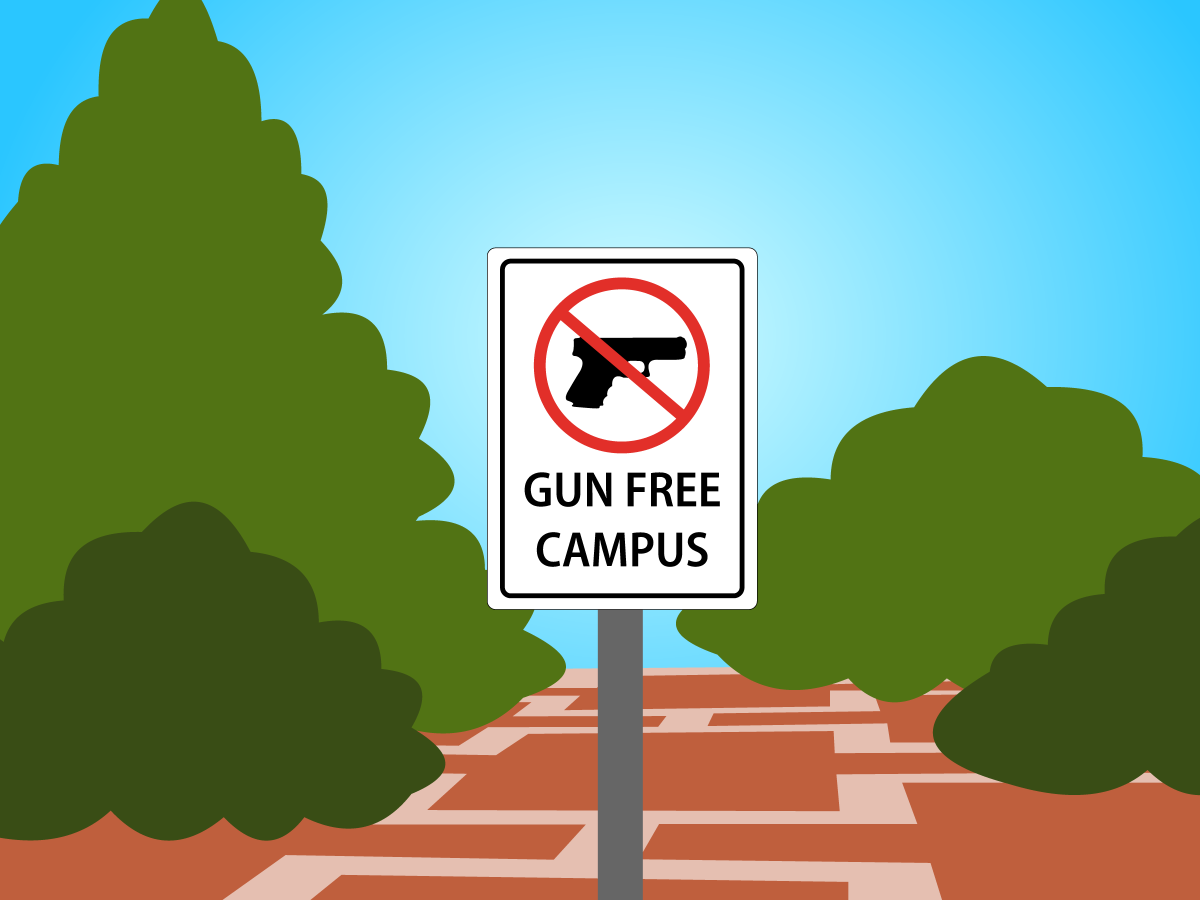According to North Carolina General Statutes and NC State Code of Student Conduct, possession of a firearm on campus is prohibited in most circumstances*.
Early last month, police found semi-automatic weapons and ammo in a car parked in the Dan Allen parking deck.
Field Operations Major David Kelly with the NC State University Police Department and Michael Avery, attorney with Student Legal Services, gave an overview of the North Carolina General Statute 14-269.2 and Sec. 10.20 of NC State Code of Student Conduct regarding firearms and other weapons on campus.
“There are two things that govern the prohibition of weapons on campus,” Kelly said. “One is through the Policies, Regulations & Rules of the university … that speaks to prohibiting any type of firearm, whether they’re what we consider long guns, which are rifles or shotguns, or handguns. It also prohibits items such as bows and arrows, crossbows, BB guns, airsoft guns, long knives and stuff like that.”
In addition to the Code of Student Conduct policy, Avery said that according to University Housing Policy, residents may not use, possess or store weapons of any kind in residence halls or apartments.
“There is a state statute which speaks directly to weapons on educational property,” Kelly said. “The difference being that there’s a state statute under the concealed carry weapons law which allows an individual that has a concealed weapons carry permit to be able to have, locked in their vehicle in a container, a handgun under their concealed weapons permit. It does not allow any type of rifles or shotguns or anything else.”
Avery said that the word “school”, which is frequently mentioned in the state statute, refers to all educational properties in the state of North Carolina, including public and private schools, community colleges, colleges and universities.
“What the code says is that illegal or unauthorized possession of weapons on university premises, or university sponsored activities, is a violation of the code,” Avery said. “It also says that possession or use of weapons in any manner that harms, threatens or causes fear in others [is a violation of the code].”
Although Section 10.20 does not list the types of weapons that are prohibited, Avery said that the Campus/Workplace Violence Prevention and Management Policy Sec. 3.3 clarifies the types of weapons that are prohibited.
Kelly also explained the process for dealing with possession of an unauthorized weapon on campus.
“If they are a non-student, then we seize the weapons and the individual is charged with possession of a weapon on educational property,” Kelly said. “They’re usually arrested and taken before a magistrate. If they are a student, then we do the same thing: We seize the weapon, and they are charged with the offense and referred to the Office of Student Conduct.”
Both Avery and Kelly agree that the incident in the Dan Allen parking garage was an isolated incident.
“Most of the time, the ones that are in violation of the statute are those that are not affiliated with the university,” Kelly said. “They’re not students, faculty, staff, employees et cetera, and are not familiar with the state statute that prohibits weapons on campus. A lot of times, these are individuals that may be coming here to attend an event.”
Avery said that students with additional questions regarding weapons on campus should call, email or visit Student Legal Services.
“It always depends on what type of weapon they’re thinking about bringing on campus,” Avery said. “Even if it’s not covered by the statute, there’s always that possibility that your possession or use thereof could instill fear in another person… if somebody sees something, and that puts them in fear, technically, that’s a violation of the code and you could be in trouble for that. I think the smart thing is to err on the side of caution.”
*Editor’s note: Updated to accurately represent gun regulations on campus.








